Instrument calibration services are essential for ensuring the accuracy and compliance of various instruments used in industries such as manufacturing, healthcare, and research. Expert instrument calibration services play a crucial role in maintaining the precision and reliability of measurement equipment. By choosing a reputable and experienced service provider, businesses can guarantee that their instruments are functioning at optimal levels and are in compliance with industry standards. In this article, we test equipment calibration services will discuss the importance of expert instrument calibration services in today's highly regulated and competitive business environment.
Expert Instrument Calibration Services ensure accuracy and compliance with industry standards by calibrating various instruments and equipment used in different fields such as manufacturing, healthcare, aviation, and other industries. Calibration services involve comparing measurement values of an instrument or device with a known standard to detect and rectify any deviations. This helps in maintaining the accuracy and reliability best calibration lab of the instruments, ensuring that they are in compliance with regulatory requirements. Additionally, expert calibration services provide documentation and certificates to demonstrate the traceability of measurements, which is crucial for quality assurance and regulatory audits.
Everything You Need to Know About Instrument Calibration Services
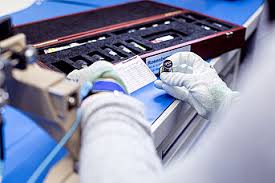
Instrument calibration services are essential for ensuring the accuracy and reliability of various instruments used in industries such as manufacturing, healthcare, and environmental monitoring. These services involve the comparison of the measurements of an instrument to a known standard in order to determine any deviations and make necessary adjustments to maintain accuracy. Calibration services are typically performed by trained technicians using specialized equipment and procedures to ensure that instruments meet specified accuracy and precision requirements. This may involve adjusting the instrument's settings, replacing worn components, or performing a complete overhaul to bring it back to its original operating condition. Regular calibration of instruments is necessary to comply with industry regulations and quality standards, as well as to maintain the integrity of measurement data. This can help to prevent costly errors, ensure product quality, and maintain the safety of operations. Furthermore, calibration services may also include the documentation of all calibration activities, providing a record of instrument performance over time. This can be crucial for traceability and for demonstrating compliance during audits or inspections. In conclusion, instrument calibration services are vital for ensuring the accuracy and reliability of instruments used in various industries. By outsourcing these services to qualified providers, companies can benefit from improved quality control, reduced risk, and calibration company enhanced operational efficiency.
The Importance of Regular Instrument Calibration Services
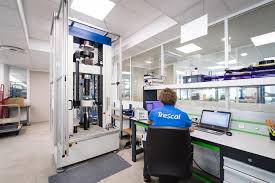
Regular instrument calibration services are crucial for ensuring the accuracy and reliability of measurement instruments and equipment used in various industries. Calibration involves comparing the readings of an instrument to a known standard in order to detect and correct any deviations and ensure that the instrument is providing accurate results. By regularly calibrating instruments, businesses can ensure that their processes meet quality standards, maintain product consistency, and comply with regulatory requirements. This is particularly important in industries such as manufacturing, healthcare, pharmaceuticals, and food and beverage, where precise measurements are critical for product quality, safety, and compliance. In addition to enhancing product quality and safety, regular calibration can also help businesses improve efficiency, reduce downtime, and lower the risk of costly errors or rework. It also provides assurance to customers and stakeholders that the company is committed to maintaining high standards of accuracy and reliability. Overall, regular instrument calibration services play a vital role in ensuring the integrity and effectiveness of measurement instruments, which is essential for the success and reputation of businesses in various industries.
How to Choose the Right Instrument Calibration Services Provider
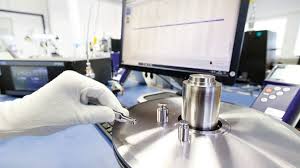
When choosing an instrument calibration services provider, consider the following factors: 1. Accreditation: Look for a provider that is accredited by a recognized organization, such as ISO/IEC 17025, to ensure their competence and capability. 2. Experience: Consider the provider's experience in calibrating instruments similar to yours, as well as their track record in the industry. 3. Services offered: Ensure that the provider offers calibration services for the specific instruments and parameters that are relevant to your business. 4. Traceability: Check if the provider has a documented and traceable calibration process to ensure the accuracy and reliability of their services. 5. Turnaround time: Consider the provider's ability to meet your calibration needs within a reasonable timeframe to minimize downtime. 6. Cost: While cost is a factor, prioritize quality and reliability over price when choosing an instrument calibration services provider.
Maximizing Efficiency with Professional Instrument Calibration Services
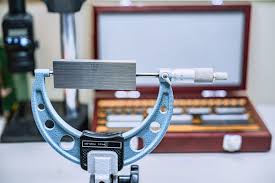
Professional instrument calibration services can greatly enhance the efficiency of your operations by ensuring that your equipment is operating at peak performance. By regularly calibrating your instruments, you can minimize the risk of errors and ensure accurate measurements, leading to improved product quality and reduced downtime. Additionally, professional calibration services can help you meet industry regulations and standards, providing you with the peace of mind that your instruments are in compliance. Overall, investing in professional instrument calibration services can lead to increased productivity, reduced costs, and improved customer satisfaction.
The Top Benefits of Investing in Instrument Calibration Services
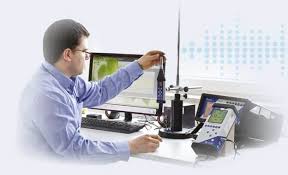
1. Accuracy: Instrument calibration services ensure that your measuring equipment provides accurate and reliable results, which is essential for maintaining product quality and meeting regulatory requirements. 2. Compliance: Calibration services help you to comply with industry standards and regulations, as many organizations require regular calibration to demonstrate the accuracy of their equipment. 3. Cost savings: Investing in calibration services can help prevent costly errors and rework by maintaining the accuracy of your equipment, ultimately saving you money in the long run. 4. Quality assurance: By ensuring the accuracy of your instruments, calibration services contribute to the overall quality of your products and services, leading to increased customer satisfaction. 5. Preventive maintenance: Regular calibration can help identify potential issues with your equipment before they become serious problems, potentially saving you from costly repairs and downtime. 6. Traceability: Calibration services provide documented traceability to national and international standards, giving you confidence in the accuracy of your measurements. 7. Peace of mind: Knowing that your instruments have been properly calibrated by a qualified service provider can give you peace of mind and confidence in the reliability of your results.
Common Misconceptions About Instrument Calibration Services Debunked
weigh scale calibration services
Common Misconceptions About Instrument Calibration Services Debunked: 1. Calibration is not necessary for new instruments: Some people believe that new instruments do not need calibration because they are accurate when they are first purchased. However, all instruments should be calibrated upon purchase and regularly thereafter to ensure accurate and reliable measurements. 2. Calibration is not important for non-precision instruments: Even non-precision instruments can benefit from calibration as it ensures that they are functioning within their specified tolerances. This can prevent miscalculations and errors, which could have serious implications in certain applications. 3. Anyone can calibrate instruments: Calibration is a complex process that requires specialized knowledge, skills, and equipment. It is not a simple task that anyone can perform. Professional calibration services have trained technicians and specialized tools to ensure that instruments are calibrated to industry standards. 4. In-house calibration is more cost-effective than outsourcing: While in-house calibration may seem more cost-effective at first, it requires significant investment in equipment, training, and maintenance. Outsourcing calibration to a professional service provider can ultimately be more cost-effective and efficient in the long run. 5. Calibration only needs to be done when there is an issue: Calibration should not be seen as a reactive measure taken only when there are obvious problems. Regular calibration is a proactive approach to maintaining the accuracy and reliability of instruments, ultimately saving time and costs by preventing potential issues before they arise.
The Key Steps Involved in Instrument Calibration Services<
testing and calibration services/h2>
Instrument calibration services involve several key steps to ensure that the instruments are functioning accurately and reliably. The first step is to establish the calibration standards, which are typically set by recognized organizations such as the National Institute of Standards and Technology (NIST). Once the standards are defined, the next step is to compare the instrument's measurements to the established standards. This is typically done using specialized calibration equipment and procedures to determine any deviations from the expected values. If any discrepancies are found, adjustments or repairs may be necessary to bring the instrument back into compliance. After any necessary adjustments or repairs are made, the instrument is re-tested to ensure that it now meets the established calibration standards. Finally, a calibration certificate is issued to document the results of the calibration and provide a record of the instrument's accuracy. These key steps are essential in ensuring that instruments are calibrated properly and can provide accurate and reliable measurements in various applications.
Enhancing Accuracy and Precision with Instrument Calibration Services
Instrument calibration services are essential for ensuring the accuracy and precision of various measuring and testing equipment. These services involve comparing the readings of an instrument to known standards and making necessary adjustments to ensure its accuracy. By regularly calibrating instruments, businesses can maintain the reliability of their measurements, reduce the risk of errors, and ensure compliance with industry regulations and standards. Calibration services are available for a wide range of instruments, including pressure gauges, thermometers, scales, pipettes, and more. Accredited calibration laboratories use advanced equipment and processes to provide traceable and reliable calibration services. Regular calibration not only enhances the accuracy and precision of instruments but also helps in prolonging their lifespan. It can identify any potential issues or drift in measurements and allows for timely adjustments and repairs to be made. This proactive approach can ultimately save businesses time and money by preventing costly errors and equipment downtime. In addition to maintaining the accuracy of instruments, calibration services can also help improve the quality of products and services, increase customer satisfaction, and foster a culture of continuous improvement within an organization. Overall, investing in instrument calibration services is crucial for ensuring the reliability and integrity of measurement data in various industries, including manufacturing, healthcare, pharmaceuticals, and more.
Understanding the Role of Instrument Calibration Services in Industry Standards
Instrument calibration services play a critical role in ensuring that instruments and equipment used in various industries meet industry standards and regulations. Calibration is the process of comparing the measurements of an instrument to a known standard to determine its accuracy and reliability. This is essential for maintaining the quality and consistency of measurements, which is crucial in industries such as manufacturing, pharmaceuticals, healthcare, and environmental monitoring. Calibration services help industries meet regulatory requirements and maintain the quality and accuracy of their processes and products. It ensures that instruments are performing within acceptable tolerances and provides traceability to national and international standards. This not only helps in ensuring compliance with industry regulations but also contributes to the overall efficiency and reliability of operations. By outsourcing calibration services to accredited third-party providers, industries can benefit from expertise, specialized equipment, and documentation that demonstrate compliance with industry standards. This can help in avoiding costly errors, rework, and potential safety hazards that may result from inaccurate measurements. Overall, understanding the role of instrument calibration services in industry standards is crucial for maintaining quality, reliability, and compliance in various industrial sectors.
Improving Safety and Quality Control Through Instrument Calibration Services
Instrument calibration services play a crucial role in improving safety and quality control in various industries. These services involve the comparison of a measurement device, instrument, or system with a standard of known accuracy to detect and correct any deviations. By ensuring that instruments are accurately calibrated, organizations can maintain consistent and reliable measurement data, which is essential for meeting regulatory compliance and quality standards. Calibration services help to identify and rectify any inaccuracies or drift in instrument readings, which can lead to costly errors or compromised product quality. Regular calibration also extends the lifespan of instruments and minimizes the risk of equipment failure, contributing to a safer working environment. Additionally, it provides confidence in the accuracy of test results, enabling organizations to make informed decisions based on reliable data. Quality control through instrument calibration services is particularly important in industries such as manufacturing, pharmaceuticals, healthcare, and engineering, where precise measurements are critical. This includes ensuring the accuracy of temperature, pressure, flow, and electrical measurements, among others. By partnering with a reputable calibration service provider, organizations can benefit from expert calibration techniques, traceable certifications, and compliance with industry standards. Overall, instrument calibration services are an indispensable tool for maintaining safety and quality control in various industries, ultimately leading to improved operational efficiency and customer satisfaction.
